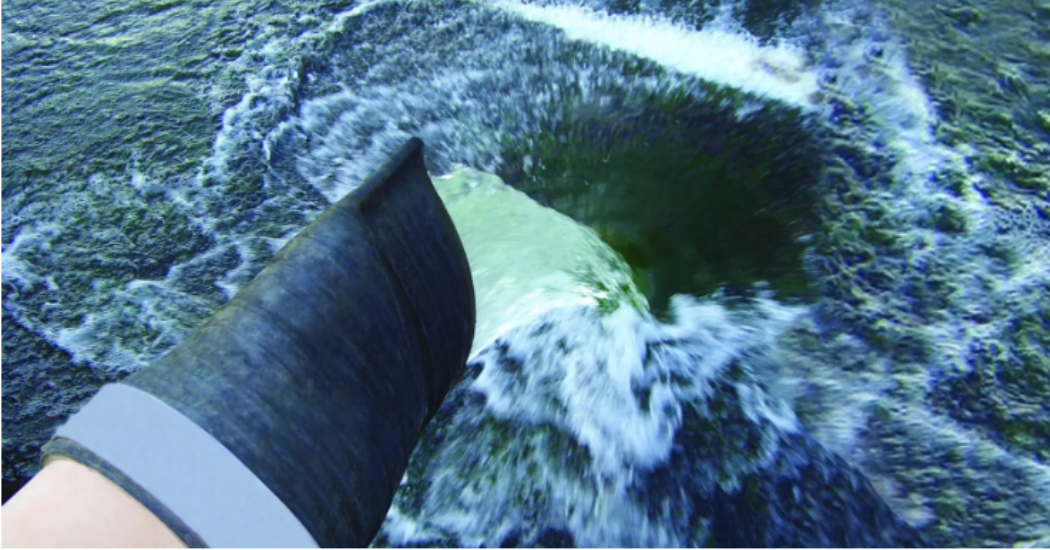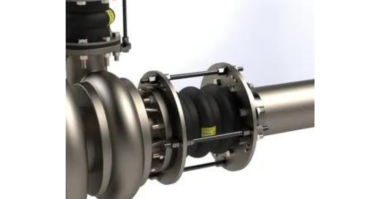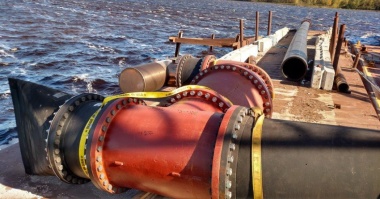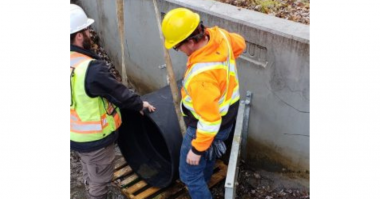When you design check valves into your piping system, you are making an investment in preventative maintenance. Check valves support savings from both production downtime and equipment damage, such as when a valve leaks back into a pump cavity or sumps or when there is a pressure surge and there is a reversal of flow. If there is a pressure surge or the flow reverses in your pumping system, this creates a risk of damage to an integral part of the system. For example, when a flow reverses near the discharge end of a pump, it can cause the pump rotor to rotate the opposite direction, and this may cause damage to the internals of that pump.
The introduction of a correctly specified check valve avoids repairing or replacing a pump and the production time lost in correcting the issue.
A check valve can offer more than just ensuring positive sealing; some check valves are specifically designed to address valve slam. Valve slam is an industry-wide problem for water and wastewater facilities and happens when the pumped liquid flows back to the check valve after a pump shuts off. When this occurs, the check valve will slam, making a loud “bang” sound. In a plant with only a few check valves, valve slam is potentially tolerable; but when you have a few hundred check valves in a larger, more complex piping system, the noise can not only be very hard on the ears of the operations personnel, it can also break flanges and swing gates in some mechanical check valve designs.
The solution is the rubber duckbill check valve which is designed as an alternative to traditional swing gate, inline check valve and flap gate type check valves. The unique benefit of a rubber duck bill check valve over a typical lever operated or hydraulically dampened check valve is that it is made of a flexible material that can dampen the effect of when the pump shuts off and the energy flowing upstream comes back toward the pump. The rubber duckbill check valve is able to deflect or take up the energy within the body of the valve, thereby eliminating valve slam and preventing water hammer, which in some cases will damage pipe supports and over time cause ruptures in the piping system.
Rubber duckbill check valves are highly recommended for water and wastewater systems. As the flow of water or flow of sewage is moving through the valve, the flow encourages the lips of the valve to open, allowing the pumped material to flow out to either an ocean outfall, into a ditch or into a waterway.
With a flange configuration, this type of in-line check valve is made out of carbon steel or stainless steel and has flush ports on both the top and bottom of the valve, which allows maintenance crews to flush the valve in case there are instances of plugging or obstructions – basically eliminating the need to dismantle swing gate type check valves – thereby reducing maintenance.
In summary, check valves and, rubber check valves in particular, offer advantages in preventative maintenance and supporting production up time:
- Preventing backflow: Check valves are designed to allow fluid to flow in only one direction, preventing it from flowing back when the pressure drops or the pump is turned off. This helps to protect the system from contamination and damage.
- Protecting pumps: Check valves can help to protect pumps from damage by preventing backflow when they are turned off.
- Reducing water hammer: Water hammer is a sudden pressure surge that can occur when the flow of water is stopped abruptly. Check valves help to reduce water hammer by preventing the flow of water from reversing direction.
- Improving energy efficiency: Check valves improve energy efficiency by preventing water from flowing back to the pump, which would require the pump to work harder to maintain the desired flow rate.
- Reducing maintenance costs: Rubber check valves are simple devices reduce overall maintenance for water and wastewater systems.
You can find out more about how Proco Products preventive maintenance plant surveys prevent downtime, plant failures, and save costs.
Watch a video of Cal Hayes, Proco Products General Manager discussing the Proco ProFlex 750 In-Line Flanged Rubber check valve which is designed to tackle many of the challenges caused by valve slam.




